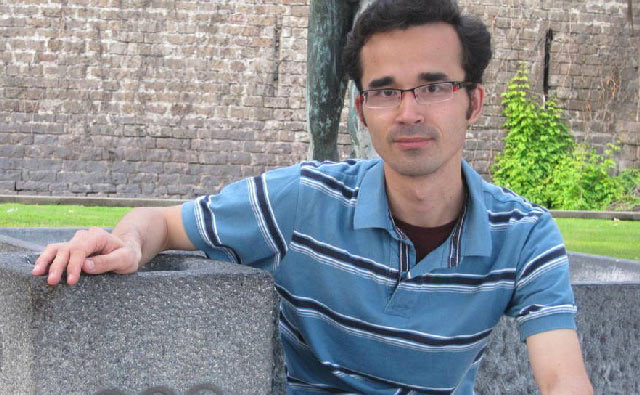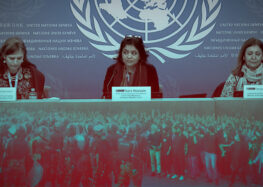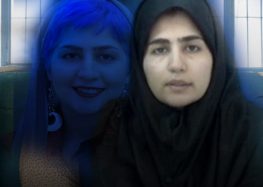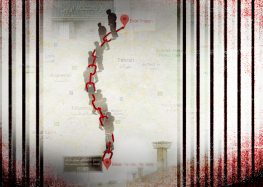Imprisoned Young Physicist Stricken with Cancer after Years of Denied Medical Care

April 18, 2016—Prisoner of conscience Omid Kokabee, the young physicist who has been imprisoned in Iran for over five years for his refusal to work on military research for the Islamic Republic, has been diagnosed with kidney cancer after years in which prison authorities denied him treatment for his kidney illness.
Kokabee should be released immediately and unconditionally for medical treatment, the International Campaign for Human Rights in Iran said today.
“The continued endangerment of Kokabee’s life is tantamount to torture,” said Hadi Ghaemi, executive director of the Campaign. “The international outcry over the harsh and unjustified treatment of this gifted young scientist must be loud enough for Tehran to hear.”
Kokabee has suffered from kidney stones and other serious illnesses throughout his imprisonment, none of which has been properly treated—a common experience for political prisoners in Iran. This lack of treatment has resulted in the life-threatening situation the 34-year-old scientist now faces.
An informed source told the Campaign that early diagnosis of Kokabee’s condition could have prevented the advanced state of his cancer. “If he had been transferred out of the prison to receive a routine sonography in November 2011, when he first experienced bleeding and pain caused by kidney stones, [the issue] would have been noticed. Even a simple sonography would show a tumor. Omid had repeatedly gone to the prison infirmary, complaining of kidney and stomach pain.”
“The sonogram ordered for kidney stones accidentally revealed the large tumor. He had been waiting for a long time to be transferred to a hospital with a urology department, but the officials wouldn’t agree to it. Prison doctors never even examined him, and kept prescribing painkillers for him. This is the second time he was transferred to a hospital. A week ago, Omid was diagnosed with cancer. His entire right kidney is affected by a cancerous tumor,” said the source.
Kokabee’s lawyer, Saeed Khalili, told the Iranian Labor News Agency (ILNA) on April 16, 2016, “After several tests and check-ups in the hospital, it has become clear that Mr. Kokabee has a malignant tumor in his kidney and needs an immediate nephrectomy to remove all or part of his kidneys.”
The lawyer added that any delay in Kokabee’s release “could result in irreparable harm to this young man.”
Kokabee has been in Evin Prison since he was arrested on January 30, 2011 at Tehran’s Imam Khomeini Airport on his way back to the U.S. to continue his studies as a post-doctoral student in physics at the University of Texas at Austin.
Kokabee said he was imprisoned for refusing an offer from the Iranian intelligence establishment to collaborate on a military research project, writing in an April 2013 open letter from Evin Prison to Iran’s supreme leader, Ali Khamenei, that his punishment was “for someone who refused to work in the security and military system despite financial and technical incentives.”
He is currently serving a 10-year prison sentence for “contact with enemy states.”
Thirty-one Nobel Physics laureates joined thousands of activists in calling for his release in October 2014, and the American Physical Society awarded their 2014 Andrei Sakharov Prize to Kokabee “for his courage in refusing to use his physics knowledge to work on projects that he deemed harmful to humanity.”
The Committee of Concerned Scientists published an open letter on January 30, 2016 to Iranian President Hassan Rouhani calling for Kokabee’s unconditional release.
“My client has passed kidney stones and suffered internal bleeding many times during his five years and three months in prison,” his lawyer Saeed Khalili told ILNA on April 16, 2016.
“Enough evidence has been presented to prove his innocence…in addition to that, he has been eligible for parole for more than two years,” he added, “but the judicial authorities have opposed Kokabee’s release.
“Even Mr. Javad Larijani [Head of the Iranian Judiciary’s Human Rights Council] promised [Kokabee’s] release in an interview with Iran’s Channel 2 television, in March 2015,” said Khalili. “We are bewildered as to why some hands don’t want him to go free.”
“The continuation of my client’s imprisonment is not only dangerous to his health, but also without legal basis,” said Khalili. “For humanitarian reasons, we seek Islamic mercy to save this gifted scientist from danger and ask the honorable judicial authorities to pay special attention to this case and facilitate his freedom as soon as possible.”
Article 502 of Iran’s Criminal Code states: “If a prisoner is suffering from physical or mental illness and his imprisonment would make his illness worse or delay his recovery, the judge can postpone the sentence being served until the prisoner regains his health after consultation with his physician.”
Kokabee’s mother detailed her son’s severe health problems in a 2015 letter to Iran’s supreme leader, Ali Khamenei. “[Omid] has passed kidney stones under great pain four times without any treatment. He has had serious stomach problems and lost four of his teeth…we appeal to Iran once again to release [him]….” wrote Safar Bibi Haghnazari.
“We would like this person to be pardoned,” Larijani told the semi-official Iranian Student News Agency (ISNA) on March 16, 2015, adding that he had held meetings with officials to discuss Kokabee’s release.






